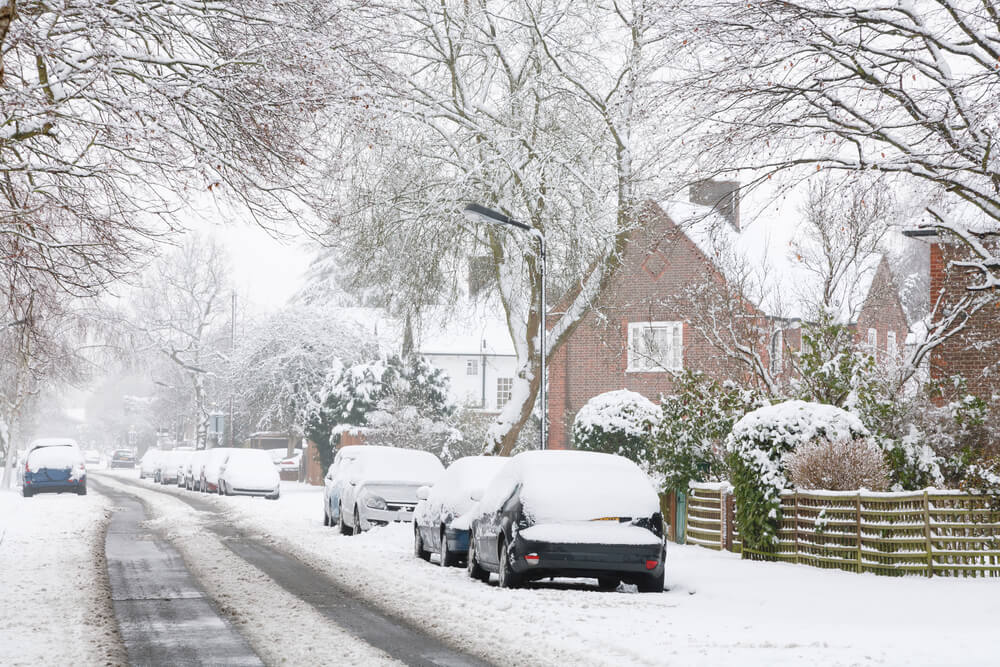Winter in the UK can be harsh on your garden, with cold temperatures, frost, and potentially heavy snowfall. However, with the right preparations and care, you can protect your garden from the winter elements and ensure it flourishes once spring arrives.
Whether you are a homeowner or a landlord of let property, it pays to spend that little extra time giving the garden an adequate level of protection, too. A well-maintained garden after all invariably adds value to your property.
In this guide, we’ll share essential tips to help you winter-proof your garden and maintain its health and beauty during the colder months.
Prepare
Before winter sets in, give your garden a thorough clean-up. Remove fallen leaves, dead plants, and any debris. Trim back overgrown branches and plants to encourage healthy growth in the coming season. A tidy garden is easier to manage and less prone to damage during winter.
Shelter
- plants, trees and shrubs all need shelter from the cold and wet wintry winds that will blow across your garden;
- although some of the work will have been determined by the planning that went into the positioning of plants and shrubs, extra protection can be provided by wrapping the more vulnerable in horticultural fleece;
- mulching may also help to keep the soil warm and moist – serving as a natural insulator for your plants;
- move delicate or frost-sensitive pots and containers to a sheltered spot, such as a greenhouse, shed, or under a porch;
Winter resistant plants
- opt for plants that thrive in colder temperatures, such as winter-flowering heathers, winter aconites, and snowdrops. These plants can add colour and interest to your garden even during the winter months;
Prune and trim
- prune your trees and shrubs to remove dead or diseased wood. Proper pruning improves air circulation and sunlight exposure, promoting healthier growth when spring arrives;
Water
- don’t forget the damage that may be caused by the excessive downpours of rain your garden is likely to get over the autumn and winter months;
- the more plants you have in your garden the better – they help to mop up all that excess rain;
- once again, advance planning in your planting may help to determine areas which are likely to remain wetter than others – so, for those parts of your garden choose water-loving plants such as lilies, hydrangeas, and luxurious ferns;
Lawns
- that low-maintenance lawn you hoped might take some of the work out of gardening might as easily turn into an unsightly quagmire after a downpour or two;
- serious waterlogging might call for the lawn to be completely re-laid when spring comes around, but a temporary remedy might be found in spiking it well to ensure as good a drainage as possible;
Raised beds
- if other areas of your garden regularly become water-logged, you might consider building raised beds to keep plants and shrubs above the waterline;
- these are easier to control when winter is doing its worst and help to maximise the space and planting opportunities in your garden – just make sure to keep them topped-up with good quality soil;
Debris
- wind, rain, ice and snow are all likely to increase the amount of general debris strewn across your garden;
- this needs to be cleared away not only for appearances sake but also to keep planted areas healthy and paths and walkways accessible;
- fallen leaves and other compostable material may be kept until spring, when you can re-apply it as fertilizer for planted areas;
Wildlife
- play your part in maintaining what is a mini-ecosystem in your garden – including both its flora and fauna;
- birds are likely to be among the most frequent visitors to your garden, so put up feeders for them and ensure they have enough water not only to drink but also to bathe in;
- you might be surprised by how many other animals make use of any ponds or water features in your garden, so, keep them from freezing over;
Check garden structures
- inspect and reinforce any garden structures like trellises, arches, and fences to ensure they can withstand winter winds and potential snow loads;
Garden equipment maintenance
- clean and properly store garden tools and equipment to prevent rusting and damage during the winter. Keep them in a dry, sheltered place.
Time spent winter-proofing your garden is likely to prove more than worthwhile. Protecting what is already established means that there is less work to do come the springtime and you may take comfort in the fact that the maintenance you do now helps protect the value of your home or let property.








